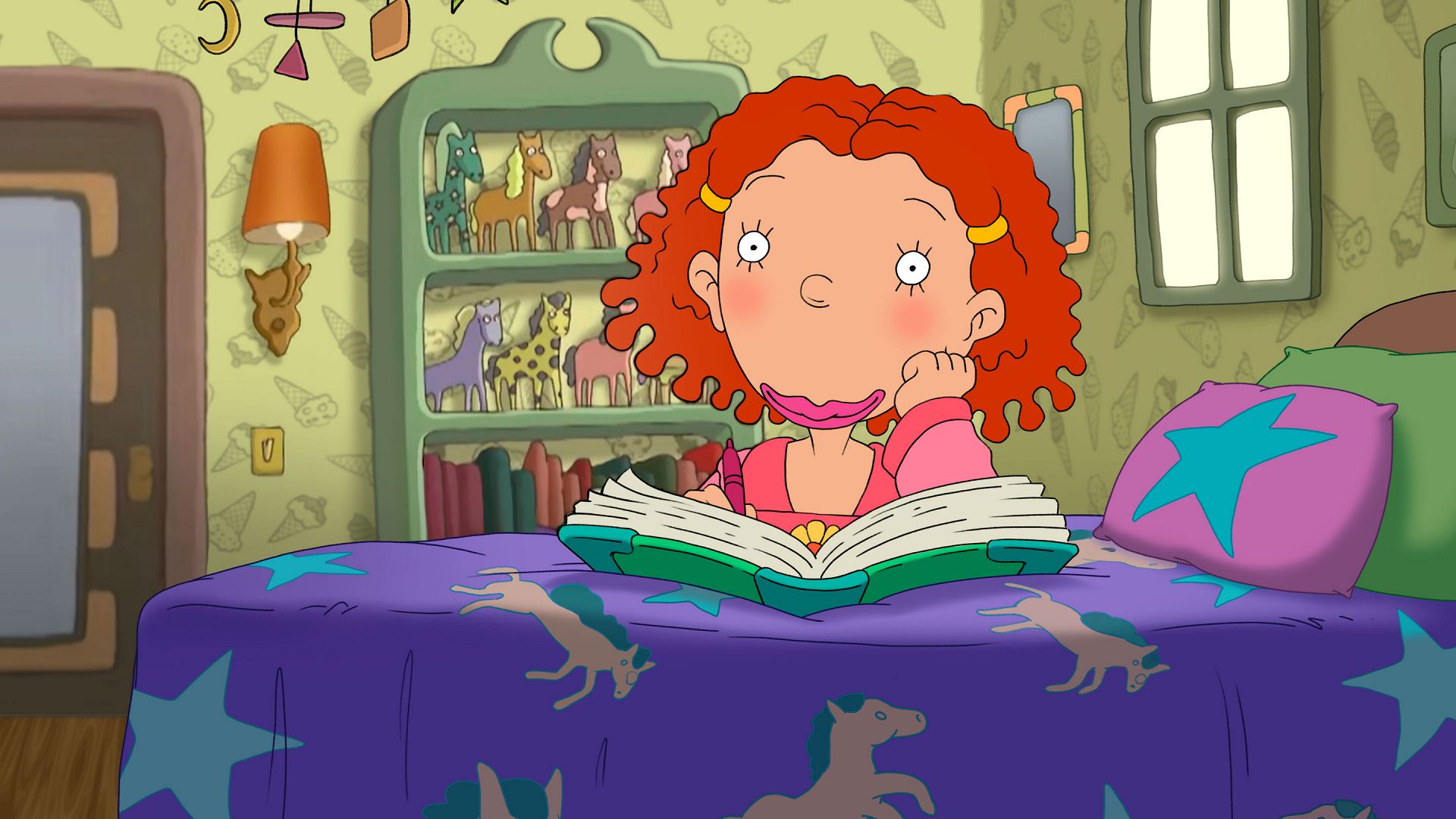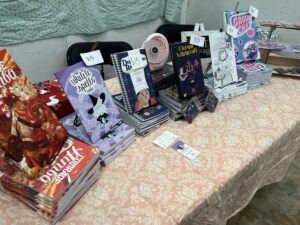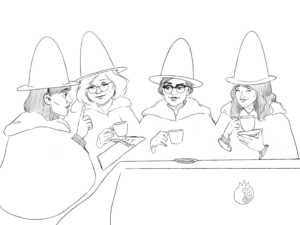I have amazing friends. They have been with me through good times and bad times. We’ve exchanged advice, shared meals, and created support systems I hope will last for years. They’ve also helped me save hundreds of dollars by generously sharing their streaming services.
When Paramount Plus was released, my friend got an account nearly instantly. He grabbed my computer and typed the login information, excitedly pointing out the kids section. It looks like Paramount Plus has cornered the millennial nostalgia market. It features a decent catalogue of foundational Nickelodeon cartoons like Hey Arnold! and Rugrats. I shrugged at those selections, taken aback by the presence of shows that I rarely hear people talk about with as much fondness, such as The Wild Thornberries and As Told By Ginger.
When my friend left, I curled up on my futon and pulled up As Told By Ginger. I started the first episode, surprised that I could remember it beat for beat.
Growing up, I wasn’t sure if I liked As Told By Ginger. I spent the first decade of my life willing to watch anything as long as it was animated.
But As Told By Ginger was different from the shows I tended to watch throughout the nineties. It premiered in 2000 and actively focused on the middle school experience of a girl named Ginger Foutley. Unlike most Nickelodeon programming, it’s intentionally targeted toward preteens. Each episode focuses on Ginger dealing with very human problems, such as being embarrassed by her mom and younger brother, getting in over her head with the popular girls, or developing fleeting crushes on fellow students. Every episode ends on a wholesome note that grounds Ginger with love for her family and her friends, notably her best friends Dodie and Macie.
I found myself at odds with the show. Some of it was the technicality that I was not on a conventional middle school track. I was placed in an “upper elementary school” for fifth and sixth grade, so I didn’t actually go to a conventional middle school until seventh and eighth grade.
But the more glaring reason for the disconnect was that I was not a girl. I wouldn’t be able to make sense of my transness until I was older. I was definitely a kid who had friends, but they would outright say that I was weird. It got more complicated when I was finally in middle school. I came out to my friends and while no one overtly shunned me, they would not let me get undressed next to them during gym class, or they would accept me and then start rumors about me behind my back. It was hard to imagine that my friends would volunteer to work on a talent show to make sure I didn’t humiliate myself, much like Ginger did for her friend Macie.
That said, when I began watching the first season as an adult, I found myself remembering a bunch of the plot points. There were even a few lines that I remembered exactly which syllables were stressed, a depth that I was taken aback by.
Even with this surprise, I totally understand why I like the show twenty years later.
The pandemic has pushed us to search for comforts. Many of us are revisiting the things we enjoyed when we were younger. Even if As Told By Ginger was not as grounding for me as AFI’s Sing the Sorrow was in eighth grade, the setting is able to transport me regardless. I feel nostalgia when I watch these kids wander around their town, because not only does it remind me of living in a walkable suburb, but it reminds me of when I could walk around the town I live now without fumbling to put two masks on.
As Told By Ginger offers more than just that jolt of nostalgia you might enjoy while rewatching childhood TV shows. Sure, it has halcyon ideas of the middle school experience, but it’s also able to create moments of reality with ease. Some of them are low stakes. For example, Ginger has chemistry with a guy that her friend Dodie is crushing on. Other times they are high stakes, like Ginger’s mediocre father not attending her talent show performance.
Now that I am someone who works with middle schoolers (as opposed to being one), I can admire this show’s ability to understand how important every moment is to a preteen audience. The show isn’t afraid to acknowledge that crushes can become all consuming. Characters stumble over their words or run away mid-conversation. As Told By Ginger also understands the roller coaster of having a mediocre father, with rises of hope that maybe, just maybe, a parent will be there for you. It also isn’t afraid to show how a child is forced to accept that a parent has screwed up again.
Perhaps it is inevitable that I didn’t quite understand this when I was a kid. I couldn’t process that even if my life experiences weren’t an exact copy of Ginger’s, I certainly went through similar emotional narratives.
But I think something keeps hitting me, both as a person in a pandemic, and as a trans person who was a confused preteen: This show was a way for me to safely connect with loving friendship.
As Told By Ginger strikes a perfect balance on friendship. The characters experience a wide range of struggles, including Ginger’s fears that she is outgrowing her friendship with Macie after Macie freaks out about watching a required movie on puberty. In this same episode, Ginger asks her mom why she doesn’t keep in touch with an old friend, and her mom replies that “circumstances change and people move on.” It was a moment of honesty I didn’t expect a show I lost track of for two decades to have.
I wonder if I connect with the series better as an adult because I actually have adult friendships as strong as Ginger’s middle school ones. Sure, I joke about my friends giving me passwords to use their streaming services, but even that involves a level of trust. It’s someone saying that your friendship is worth someone spending $4.99 a month without seeking anything in return. It’s someone resigned to their recommendation algorithm being messed up, because their friend seems to be alternating between As Told By Ginger and Ink Master for some ungodly reason. It’s an unquestionable type of love that I thought only existed on TV.
I didn’t have a Dodie or a Macie growing up. I am sure it would have prevented a lot of heartache, but I made it long enough to adulthood to find friends just as well intentioned. We don’t resolve issues within twenty-two minute run times, but we try our best. And that’s exactly what you need, no matter how old you are.
Featured image source: Nickelodeon’s As Told By Ginger, via Paramount Plus.



